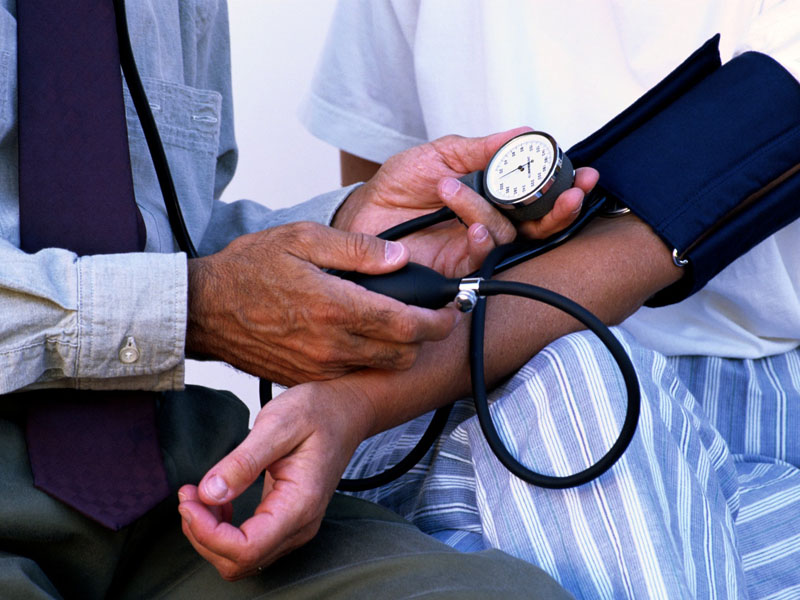According to the American Heart Association, high blood pressure — otherwise known as hypertension — is present in approximately one-third of the U.S. adult population and it has barely any symptoms. Excessive blockage in the arteries can lead to the development of pressure buildup in your body’s circulatory system, and as a key vital sign, blood pressure measurements are a way of determining a principal factor in your body’s overall health.
High blood pressure increases the risk for having a stroke and for developing disease in the heart and kidneys, but with proactive behavior and a healthy change in lifestyle, you can lower your blood pressure and improve your heart health.
Here are some ways to maintain lower blood pressure:
1. Healthy Diet
Making sure that you are sticking to a healthy eating pattern that is structured around the consumption of vegetables, fruits, and lowfat dairy products is one of the surest ways to keep high blood pressure away. Also, it is vitally important to avoid foods that contain high levels of sodium, and to steer away from the habit of adding more salt to your food once it is ready to be eaten.
Currently, the Center for Disease Control recommends a daily intake of no more than 1,500 milligrams of salt (about one teaspoon) for those with high blood pressure, and also recommends consuming foods high in potassium, on a daily basis. A proper balance between your body’s potassium and sodium levels is a critical factor in maintaining a healthy blood pressure.
2. Stay Active
Being overweight or obese is a huge player in the potential to developing high blood pressure. The walls of your arteries may become plastered with buildup due to a dietary routine involving foods high in saturated fats and cholesterol in combination with a sedentary lifestyle. Physical activity is a necessity in a world with a multitude of unhealthy foods that beg to be eaten.
Consistent and safe exercise habits along with smarter dietary decision-making increases your likelihood of losing unhealthy weight and gradually moving toward lower levels of cholesterol and a healthier blood vessels.
3. Cut Down on Drinking
Controlling the way you drink alcohol, whether by reducing or increasing your intake, can help you in lowering your blood pressure. Scientific evidence has proven that excessive alcohol consumption increases one’s blood pressure, even by 2 to 4 points at a time. Research shows that alcoholic beverages generally contain a moderate amount of calories, which may lead to weight gain, a known risk factor for high blood pressure.
Additionally, it may reduce the effectiveness of some medications that are meant to reduce blood pressure. Still, recent research has also shown that having one or two daily alcohol drinks may actually contribute to a reduction in blood pressure; any more than this recommended daily intake, however, and you may in fact be causing more harm than help.
4. Stop Smoking
Smoking tobacco can severely increase your chance of getting high blood pressure. Smoking tobacco products can cause fatty buildups in your arteries, leading to atherosclerosis, that biggest contributor to the large number of deaths from smoking. High blood pressure is found in numerous studies amongst heavy smokers, and is a direct effect of routine tobacco use.
5. Consider Medication
There are many different medications out there that are intended to help you reduce your blood pressure. Some are diuretics, which help the body rid itself of excess levels of sodium, while others prevent the effects of angiotensin, a hormone that causes the narrowing of one’s arteries, and some medications are blood vessel dilators that cause the muscles in the walls of your arteries to relax, letting the vessels widen and allow the blood to stream more freely.
The variety of medications that are aimed at lowering high blood pressure may come with several side effects and are meant to be taken at differing doses and frequencies; consult a doctor when considering a medication that is right you.
Sources:
Heart.org
This article was written by Brennen Kliffmueller. Brennen has had a long family history of hypertension and has vowed to learn everythin he can in order to stop the cycle. He is a professional writer for DriverPhysicals.com and you can read more of his work by visiting his Google+.
